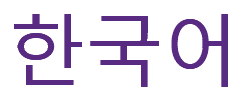A Leadership Certificate Program designed for pastors, church planters and other Christian ministry leaders who prioritize diversity, equity, and inclusion in their organizations.

The Leading Diversity-Oriented Ministries Program prepares church planters, pastoral leaders, ministry leaders, and higher education professionals for leadership roles in diversity-oriented organizations. The goal of the program is to provide leaders with the necessary awareness, knowledge, skills, and experience to provide effective intercultural leadership.
Background
Current trends suggest that a significant number of churches are overcoming the limiting effects of racial conflict, prejudice, and ethnocentrism despite church traditions, beliefs and systems that promote homogeneity as a practical alternative to the inevitable conflicts between different people groups. Diversity-oriented churches, despite the challenges they face, while addressing the inevitable conflicts between different people groups, are some of the fastest growing churches in the United States. Inspired by what he learned from a research study of leaders of diversity-oriented churches (multiracial, multiethnic and multi-cultural) , Dr. A. Brian Leander developed Leading Diversity-Oriented Ministries.
What is a Diversity-Oriented Church?
At the group level, the term diversity is used to refer to heterogeneity within a group on characteristics such as (race, age, and ethnicity) or value-based (ethic, motivation, political orientation) differences. Diversity-oriented churches are missional churches that are intentional about creating a climate where members’ diversity, equity, inclusion and belonging are a Gospel imperative.
Motivated by biblical mandates for reconciliation (2 Cor. 5:17-21) and justice (Mic. 6:8) as they participate in God’s mission to redeem people from every nation, tribe, people, and tongue (Rev. 7:9), these churches express value for diversity in their vision and mission, ministry and leadership practices, communal life and worship, and community engagement. In these organizations, members and leaders promote value and respect for perceived and actual differences between a wide variety of people, work to intentionally share leadership among the diverse constituents present and seek to participate in meaningful intercultural life together.
Rationale
As the values of diversity, equity and inclusion further take hold in the Church in the United States, there will be a greater need for competent intercultural leaders. As with many other examples of effective leadership, leaders of diversity-oriented ministries must practice and preach what they believe about diversity, equity and inclusion of all kinds of people in keeping with the mission of Christ.
Program Participants
Each year a cohort of 15 church planters, pastoral leaders, ministry leaders and higher education professionals will begin the three-phase, 12 month-long learning and development program.

Eligibility
Applicants should meet the following qualifications:
- Hold a pastoral or administrative position in a Christian ministry
- Possess an undergraduate degree or higher
- Have expressed support by their organization’s leadership
Women and people of color will be strongly encouraged to apply and will be given consideration for scholarships to support their participation in the program.
Learning Objectives
The learning objectives of this program follow a “be, know, and do” approach to leader learning and development, where the participants will develop a range of skills and practices for effective leadership in diversity-oriented ministries.
Phase 1: Leader Development
The learning objectives of this program follow a “be, know, and do” approach to leader learning and development, where the participants will develop a range of skills and practices for effective leadership in diversity-oriented ministries.
Phase 2: Leadership Development
Applying leadership principles to increase participants’ leadership capital (knowledge, skills, and abilities associated with formal leadership roles).
Phase 3: Organizational Leadership
Setting shared strategic goals for an organization while motivating and inspiring individuals within the group to become active in the process.
Learning Objectives
Leading Diversity-Oriented Ministries (DOM) uses an interactive method for leadership development based on a collaborative style of learning to address a range of characteristics, competencies, skills and practices. The cohort of fifteen participants will meet in a concurrent hybrid format (via Zoom and in person at the BST campus) once a month for 12 months supported by weekly engagement with learning material (articles, books, video, etc.) facilitated online discussions. The curriculum and schedule take into consideration the busy lives of participants; therefore, the program consists of:
- One group session (4 hours) per month, in person or online (if the participant lives beyond a reasonable commute to Berkeley)
- Full access to the BST’s library resources
- Facilitated online discussion forums
- Professional mentoring
- A blog for peer support and networking
- Webinars that supplement on-site learning
- Case studies to reinforce learning outcomes and enhance the learning experience
- Networking lunch sessions with program faculty and invited guests
- Work and learn with our outstanding faculty and new colleagues
- Sept 2023 start date — then once/month for the next 12 months (specific dates TBD)
Cost and Credit
- 6 credit hours
- Certificate at the end
- Tuition $4500
- Scholarships available
Faculty
- A Brian Leander
- Marie Onwubuariri
- Valerie Miles-Tribble
One of the Most Interculturally Diverse Seminaries in the Country
Since our founding 150 years ago, the core values of soul freedom, service leadership, social justice, public witness, religious liberty, and the centrality of the Word (written and spoken) still guide and sustain BST to this day. These Jesus-centered values, rooted in our inclusive inter-cultural heritage, have made BST an attractive school for students of many faith and denominational affiliations.
Here you will truly enter a spiritual “world-house” of teaching and learning, with a world-class faculty and students from every habitable continent on earth.


